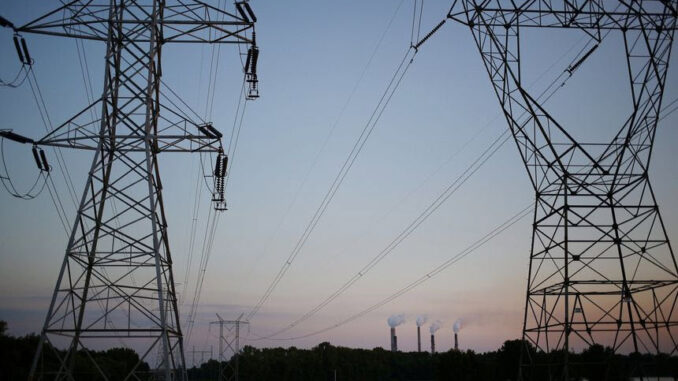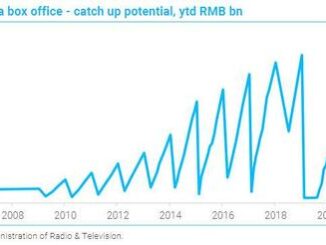
Summer is around the corner, and we suggest you prepare by buying an emergency generator, if you can find one in stock. Last week the North American Electric Reliability Corporation (NERC) warned that two-thirds of the U.S. could experience blackouts this summer. Welcome to the “green energy transition.”
We’ve been warning for years that climate policies would make the grid more vulnerable to vacillations in supply and demand. And here we are. Some of the mainstream press are belatedly catching on that blackouts are coming, but they still don’t grasp the real problem: The forced transition to green energy is distorting energy markets and destabilizing the grid.
Progressives blame the grid problems on climate change. There’s no doubt that drought in the western U.S. is a contributing factor. NERC’s report notes that hydropower generators in the western U.S. are running at lower levels, and output from thermal (i.e., nuclear and fossil fuel) generators that use the Missouri River for cooling may be affected this summer.
But the U.S. has experienced bad droughts in the past. The problem now is the loss of baseload generators that can provide reliable power 24/7. Solar and wind are rapidly increasing, but they’re as erratic as the weather and can’t be commanded to ramp up when electricity demand surges.
One problem is that subsidies enable wind and solar generators to turn a profit even when the supply of electricity exceeds demand. Coal and nuclear plants, on the other hand, can’t make money running only some of the time, so many have shut down. Natural-gas-fired plants can help pick up the slack, but there aren’t enough of them to back up all of the renewables coming onto the grid.
California last August scrambled to install five emergency gas-fired generators to avert blackouts, but its grid overseer recently warned of power outages this summer. The Golden State in past summers has relied on power imports from neighboring states. But coal plants across the West have been shutting down as renewables grow.
The risk is greater if there are wildfires, which could disrupt transmission lines. Progressives say building more transmission lines to bring renewable power from rural areas to cities and suburbs will make the grid more resilient. But this may create new vulnerabilities. A tornado this winter damaged a transmission line in the Midwest and raised the risk of power outages this summer as repairs continue.
Manufacturers in the Midwest have relied on cheap and reliable power, but that may be a thing of the past. NERC says the Midwest this summer is at very high risk of power outages, especially if there’s little wind. That’s because 3,200 MW in net generation capacity—mostly coal and nuclear—have shut down since last summer. That’s enough to power about 2.4 million homes.
The threat to the Midwest grid will increase in coming years as more coal and nuclear plants shut down. Electricity supplier Vistra has announced it will retire 6,800 MW of coal power by 2027, blaming an “irreparably dysfunctional” market and the state renewable subsidies. The former is partly a result of the latter.
“We don’t have the opportunity to just shut down a facility for four hours or six hours or eight hours a lot of time,” Illinois Manufacturers’ Association CEO Mark Denzler recently told the Center Square newsletter. “If you’re making certain products, take a food product for example, you can’t just shut down and have that food remain on the line.”
Illinois Gov. J.B. Pritzker said recently he didn’t expect power outages since the state could buy power from neighbors. He’d better read the NERC report. Most Democrats don’t seem to recognize or care that their climate policies are making the grid less resilient and reliable. Instead they’re doubling down.
Federal Energy Regulatory Commission Chairman Richard Glick last week brushed aside NERC’s warnings: “I think the argument about going back to the way it used to be 30 years ago—that’s not going to happen,” he said. “We’re moving forward” with the green energy transition. Believe it or not, FERC is the agency in charge of ensuring the grid is reliable.
President Biden has renominated Mr. Glick for a second five-year term, and he’s counting on the FERC chairman to midwife his climate agenda. This winter he and the two other Democratic Commissioners imposed regulation requiring an analysis of greenhouse-gas emissions for gas pipelines even as Russia troops amassed at Ukraine’s border.
Mr. Glick shelved the policy after sharp criticism from West Virginia Sen. Joe Manchin, but he’s likely to revive it once reconfirmed. His renomination is a clear and present danger to the U.S. electricity supply. The war in Ukraine and surging energy prices haven’t deterred Democrats from their anti-fossil fuels campaign. Will widespread power outages?
Source: WSJ



